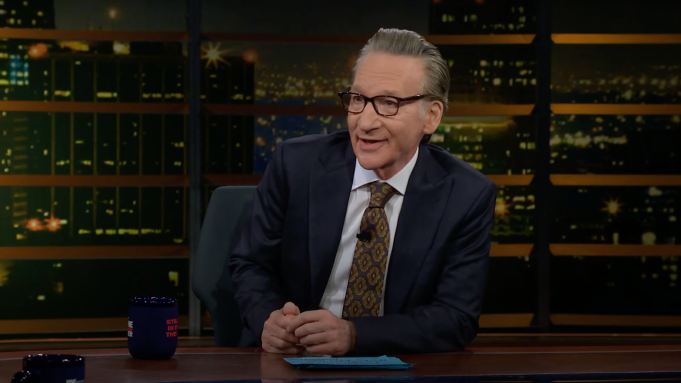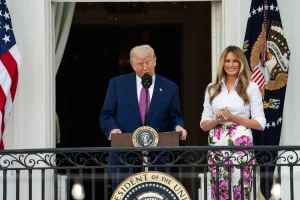Television host Bill Maher offered a surprising mix of critique and support for fellow late-night personality Jimmy Kimmel, following the indefinite removal of Jimmy Kimmel Live! from ABC’s broadcasting schedule over comments about the recent assassination of conservative activist Charlie Kirk.
Maher, host of Real Time with Bill Maher, addressed the situation on his show yesterday (September 19), striking a balance between acknowledging Kimmel’s misjudgment and defending his right to continue working.
Kimmel’s Controversial Monologue
The controversy stems from a monologue Kimmel delivered shortly after Kirk, 31, was fatally shot on stage at Utah Valley University earlier this month during his “American Comeback Tour.” In his remarks, Kimmel suggested that Kirk’s killer could be linked to Donald Trump’s MAGA agenda, drawing immediate backlash from conservative viewers and politicians.
Kimmel’s decision to frame the shooting in partisan terms prompted ABC to remove his show indefinitely from the airwaves — a move celebrated by President Trump on his social media platform Truth Social, where he wrote:
“Great News for America: The ratings challenged Jimmy Kimmel Show is CANCELLED. Congratulations to ABC for finally having the courage to do what had to be done. Kimmel has ZERO talent, and worse ratings than even Colbert, if that’s possible. That leaves Jimmy [Fallon] and Seth [Meyers], two total losers, on Fake News NBC. Their ratings are also horrible. Do it NBC!!! President DJT.”
Kimmel’s segment drew further attention for its satirical treatment of the president’s response to Kirk’s death, including footage of Trump discussing construction in the White House ballroom while reporters questioned him about mourning a friend. Kimmel quipped:
“Yes, he’s at the fourth stage of grief, construction. Demolition, construction. This is not how an adult grieves the murder of someone he called a friend. This is how a 4-year-old mourns a goldfish, okay?”
Maher Weighs In
Bill Maher, who has a long-standing friendship with Kimmel, addressed the controversy during his own broadcast, acknowledging that Kimmel may have misstepped but asserting that firing him was excessive.
“Well, I guess you all heard Jimmy Kimmel, my friend, my compatriot, he’s canned by ABC for comments he made about Charlie Kirk’s assassin,” Maher said.
He added, with characteristic humor, references to the FCC and President Trump:
“The day right after [he made the comments], the head of the FCC said he’s gonna revoke ABC’s license. Let me just tell you something: I am not intimidated by the FCC. And if President Trump is watching, I have one thing to say to you — have you lost weight?”
Maher then turned directly to Kimmel, offering both critique and reassurance:
“You know, Jimmy, look, I don’t think what he said was exactly right. I don’t agree, we don’t agree on that. Jimmy, pal, I am with you, I support you, and on the bright side, you don’t have to pretend anymore that you like Disneyland.”
Commentary on the Alleged Political Angle
Maher also took aim at the way Kimmel connected Kirk’s assassin, Tyler Robinson, to political affiliations. Maher stressed that the suspect does not belong to any party:
“Jimmy’s wrong, I think, to put him in one team. The guy doesn’t belong in either party — he belongs in a straitjacket.”
Despite this critique, Maher maintained that Kimmel should not lose his job over the monologue, framing the situation as a cautionary tale about editorial judgment rather than grounds for dismissal.
Historical Context: Maher’s Own Network Scrapes
Interestingly, Maher drew a parallel between Kimmel’s firing and his own past controversy on ABC. He noted that 24 years ago to the day, he had faced backlash over a joke referencing the 9/11 terrorists, which temporarily led to his being “cancelled” by the network.
“And Jimmy Kimmel took my slot! I got cancelled before cancel even had a culture,” Maher quipped. “ABC stands for Always Be Caving.”
He concluded his monologue by offering words of encouragement to Kimmel:
“Jimmy, let me just say, you did a great, funny show for two decades. You should be proud of that. If this firing goes for you the way it did for me, you’ll get 23 years on a better network.”
Maher’s comments reflect a nuanced perspective: while he disagrees with Kimmel’s political framing, he sees the firing as an overreaction symptomatic of larger media and cultural dynamics.
Reactions from Media and Public
Kimmel’s suspension has prompted responses from across the late-night landscape. Fellow hosts, including Jimmy Fallon, Seth Meyers, and Stephen Colbert, have publicly expressed solidarity with Kimmel, framing the ABC decision as a threat to free expression in comedy.
Fallon commented:
“To be honest with you all, I don’t know what’s going on — no one does. But I do know Jimmy Kimmel, and he is a decent, funny and loving guy. And I hope he comes back.”
Meanwhile, Meyers and Colbert criticized what they perceive as an escalating pattern of media overreach and political interference.
The public’s response has been mixed. Social media users have alternately condemned Kimmel for insensitivity and defended him as a satirist exercising his First Amendment rights. Conservative commentators, including President Trump himself, celebrated the suspension, highlighting the ongoing tension between partisan politics and entertainment media.
Charlie Kirk and the Context of the Monologue
The assassination of Charlie Kirk, 31, shocked both political sides. Kirk, a conservative activist and co-founder of Turning Point USA, was shot while addressing students at Utah Valley University on September 10, 2025.
Kimmel’s comments sought to tie the act to broader political themes, criticizing the MAGA movement and the rhetoric surrounding it. Critics argued that this connection was speculative and inflammatory, given the ongoing investigation into the shooter, Tyler Robinson, who faces multiple charges including aggravated murder.
The controversy illustrates the fine line late-night hosts navigate when addressing current events, especially tragedies with potential political ramifications.
The Broader Debate: Cancel Culture and Media Oversight
The Kimmel-Maher situation underscores an enduring debate in American media: the boundaries of comedic license, editorial responsibility, and corporate oversight.
Maher’s references to his own experience with ABC highlight the persistence of network self-censorship under pressure from political actors, regulators, or public opinion. He joked about “Always Be Caving,” but the underlying point resonates: comedians who tackle sensitive topics risk career consequences, even when exercising satirical commentary.
This dynamic has become increasingly pronounced in recent years, with networks balancing viewer ratings, advertiser interests, and political pressures. The Kimmel incident exemplifies the tension between creative freedom and corporate risk aversion.
Looking Ahead
While Kimmel’s show remains off air indefinitely, it is unclear whether he will return in the near future. Media analysts suggest that public pressure, host solidarity, and audience demand may influence ABC’s ultimate decision.
Meanwhile, the conversation around the responsibilities of late-night hosts in the context of real-world tragedies continues. Maher’s intervention reinforces a key argument: comedians can make mistakes without facing career-ending consequences, and dialogue about appropriateness should not automatically lead to termination.
Conclusion
Bill Maher’s response to Jimmy Kimmel’s firing strikes a rare balance: critique without condemnation, and support without blind agreement.
He acknowledges Kimmel’s misstep in tying Charlie Kirk’s murder to a political movement while simultaneously defending the principle that one controversial monologue should not terminate a long-standing career.
Maher’s historical perspective — drawing on his own network controversies — situates Kimmel’s situation within a broader narrative about media, comedy, and the increasingly complex interplay of political, corporate, and public pressures.
As the fallout continues, the incident highlights enduring questions about freedom of expression, accountability, and the role of satire in political discourse. For now, the conversation around Jimmy Kimmel, Bill Maher, and the boundaries of late-night commentary is far from over, serving as a potent reminder of the delicate balance between humor and sensitivity in today’s polarized media environment.

James Jenkins is a celebrated Pulitzer Prize-winning author whose work has reshaped the way readers think about social justice and human rights in America. Raised in Atlanta, Georgia, James grew up in a community that instilled in him both resilience and a strong sense of responsibility toward others. After studying political science and creative writing at Howard University, he worked as a journalist covering civil rights issues before dedicating himself fully to fiction. His novels are known for their sharp, empathetic portraits of marginalized communities and for weaving personal stories with broader political realities. Jenkins’s breakout novel, Shadows of Freedom, won national acclaim for its unflinching look at systemic inequality, while his more recent works explore themes of identity, resilience, and the fight for dignity in the face of oppression. Beyond his novels, James is an active public speaker, lecturing at universities and participating in nonprofit initiatives that support literacy and community empowerment. He believes that storytelling is a way to preserve history and inspire change. When not writing, James enjoys jazz music, mentoring young writers, and traveling with his family to explore cultures and stories around the world.









